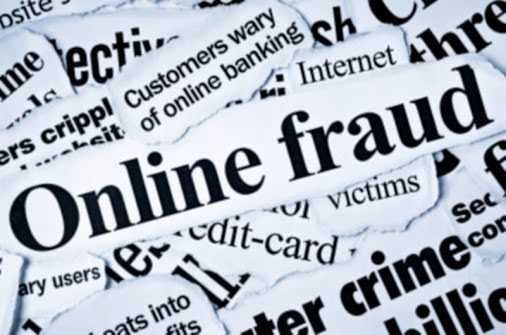The Electronic Crime Prosecution has published a useful list of scams that you may encounter when navigating the Internet. We consider the effort of the authorities to be very important and we cite the useful publication.

The most common forms of Internet fraud are the following:
a) Citibank credit card charges via the internet for purchases that were not made by themselves.
- In these cases, a malicious user Internet creates a fictitious website and in this way manages to collect data and credit card numbers of Internet users, who, having been deceived, think that it is an online store and make their purchases.
- In addition, there are several cases where laborers manage to gain physical access to credit card data for citizens who then use them in online shopping, as these purchases do not necessarily require the physical possession of the credit card, but only the details of that credit card.
- Επιπροσθέτως, σε αρκετές περιπτώσεις οι χρήστες του Internet δίνουν οι ίδιοι άθελά τους τα στοιχεία σε κακόβουλους χρήστες του διαδικτύου ( phishing ). Ειδικότερα, ο ανυποψίαστος πολίτης λαμβάνει μήνυμα ηλεκτρονικού ταχυδρομείου από Πιστωτικό Ίδρυμα, στο οποίο τηρεί account, με το οποίο του ζητείται να συμπληρώσει τα στοιχεία του (ονοματεπώνυμο, αριθμό λογαριασμού και πιστωτικής κάρτας κλπ.), για λόγους πχ. ενημέρωσης των αρχείων της τράπεζας. Το μήνυμα, μέσω υπερσυνδέσμου, τους οδηγεί σε μια πλασματική ιστοσελίδα της τράπεζας, με αποτέλεσμα ο πολίτης να πείθεται και να χορηγεί τα επίμαχα στοιχεία.
b) Shuffle messages with deceptive content that seek to cheat unsuspecting citizens.
- In particular, the mode of action of malicious actors in this form of fraud, described under the term "Spanish Lotto", is the massive sending of e-mails to random Internet users, informing them that they have earned a large sum of money of millions of dollars in electronic draw of the internet.
- The creators of these messages, in order to be credible, use similar names of large companies (e.g. Microsoft , Yahoo etc) and accompany the messages they send with fake certificates regarding the supposed electronic lottery.
- The fraud lies in the fact that they ask the presumed winners to pre-pay some taxes and / or expenses for disbursement of money, which is usually in the order of a few thousand dollars.
(c) "419 Scams" or "Nigerian Scams"
- In such cases, messages are sent to random Internet users informing them that a holder of particularly large property has died and either no heir is present and the recipient of the message has been chosen to inherit that property or to become it is necessary to transfer it to an overseas bank account and the recipient of the message is informed that if he / she disposes of his / her account, he / she will acquire a certain percentage of this property.
- In other cases, people from Nigeria seek the help of entrepreneurs or freelancers to move their funds, which are derived from criminal activities (smuggling, frauds, bribery, etc.), promising a high rate of remuneration for this cooperation. For this purpose, they use titles of official bodies of their country (Ministries, Central Bank, National Petroleum Corporation of Nigeria, etc.), use titles of government or military actors with real and fake names, or pretend to be related to "famous" or "important" faces.
- The fraud lies in the fact that message senders ask the recipients to send their personal details, bank account details and credit card, etc., in order to reach their cooperation and to obtain the money.





